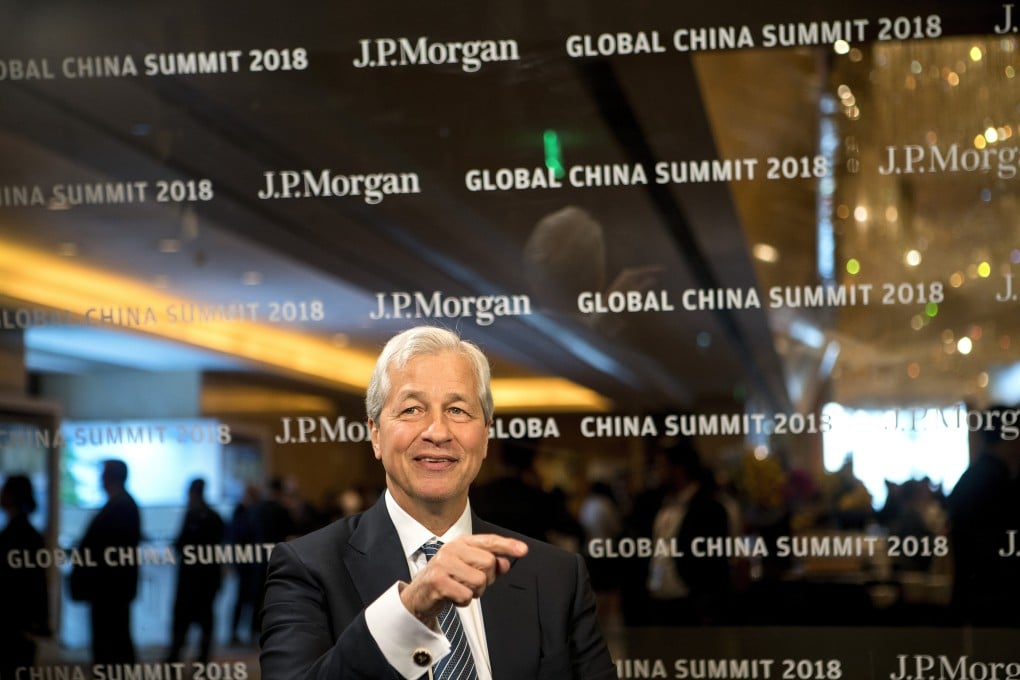Advertisement
The View | How Jamie Dimon’s Hong Kong visit highlights the enduring stability of US-China trade relations
- No matter how bad the geopolitics seems between Beijing and Washington, business and trading relations are likely to remain active and cordial
Reading Time:3 minutes
Why you can trust SCMP
12

JPMorgan Chase CEO Jamie Dimon, who heads one of the world’s biggest banks, swanned in and out of Hong Kong on Monday in his Gulfstream private jet. It would not be an unusual visit in the old days, but in the wake of the UN climate change conference, a whiff of hypocrisy now surrounds his firm’s green credentials.
Even more unusual was that he was excused the required three weeks of quarantine. The chairman of an American bank receives a Nicole Kidman-type pass while our local airline, Cathay Pacific, is crushed by increasingly onerous restrictions on its pilots – who, by the way, are bringing in the things we need.
The Hong Kong government said the exemption for Dimon was justified because the visit was short and “in the interest of Hong Kong’s economic development”. On the contrary – Dimon is desperate to preserve J.P. Morgan’s business in China.
Advertisement
He did not come here to save the world. Instead, it was merely to speak to a “town hall”, a mass grouping of bored, masked and cynical bankers, mustered in a hotel room or online to hear the boss say how wonderful he is.
To come all this way with scant regard for local regulations indicates that perhaps it was more important than J.P. Morgan is saying. It gives the distinct impression the government is star-struck every time a big foreign name seeks to visit.
HSBC chairman Mark Tucker and CEO Noel Quinn both did their three-week quarantine, yet Dimon and his entourage get a free pass to potentially break our “zero-Covid” environment. As many said during the Kidman affair, there is one rule for them and one rule for us.
Advertisement
Select Voice
Choose your listening speed
Get through articles 2x faster
1.25x
250 WPM
Slow
Average
Fast
1.25x

